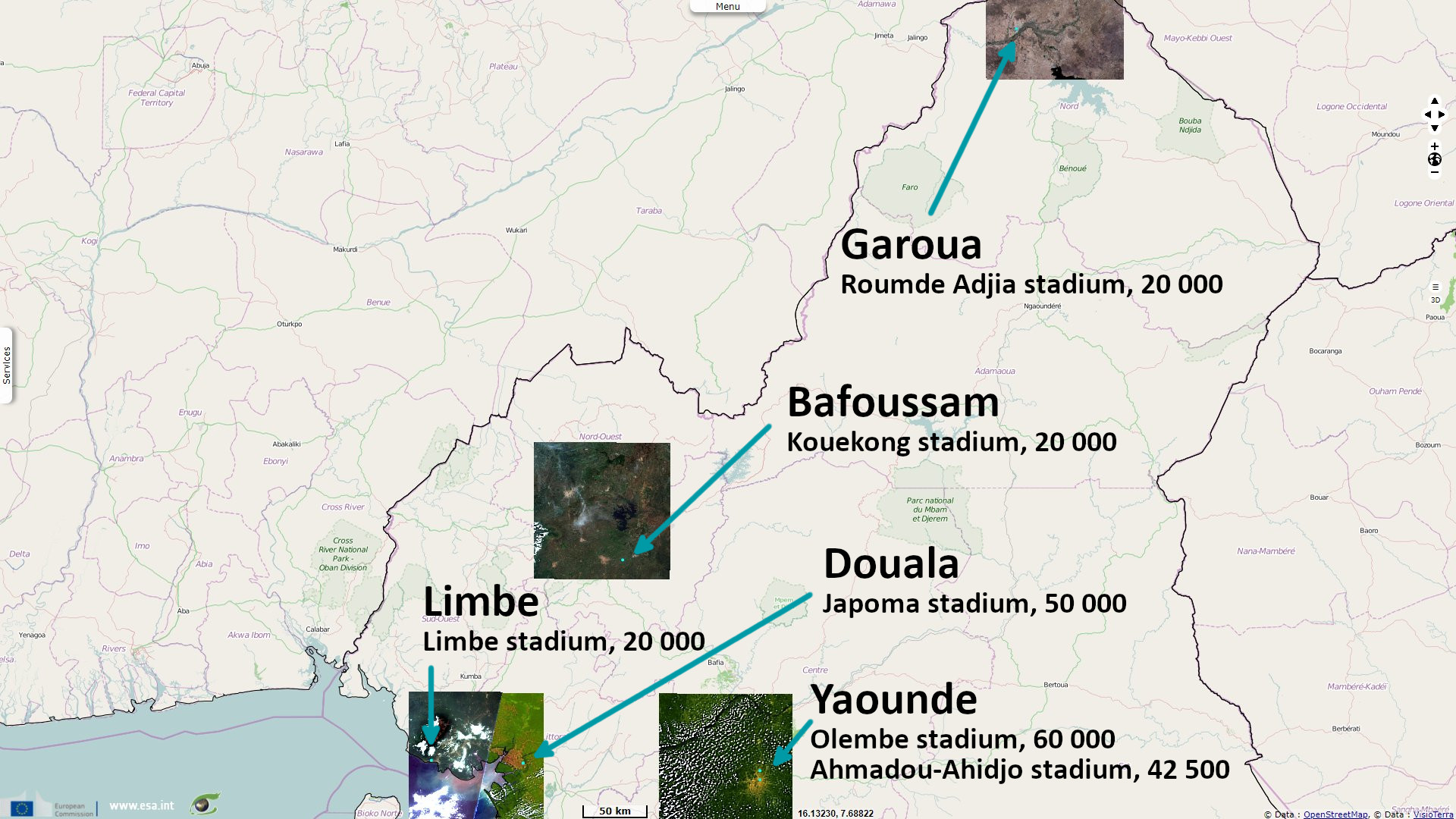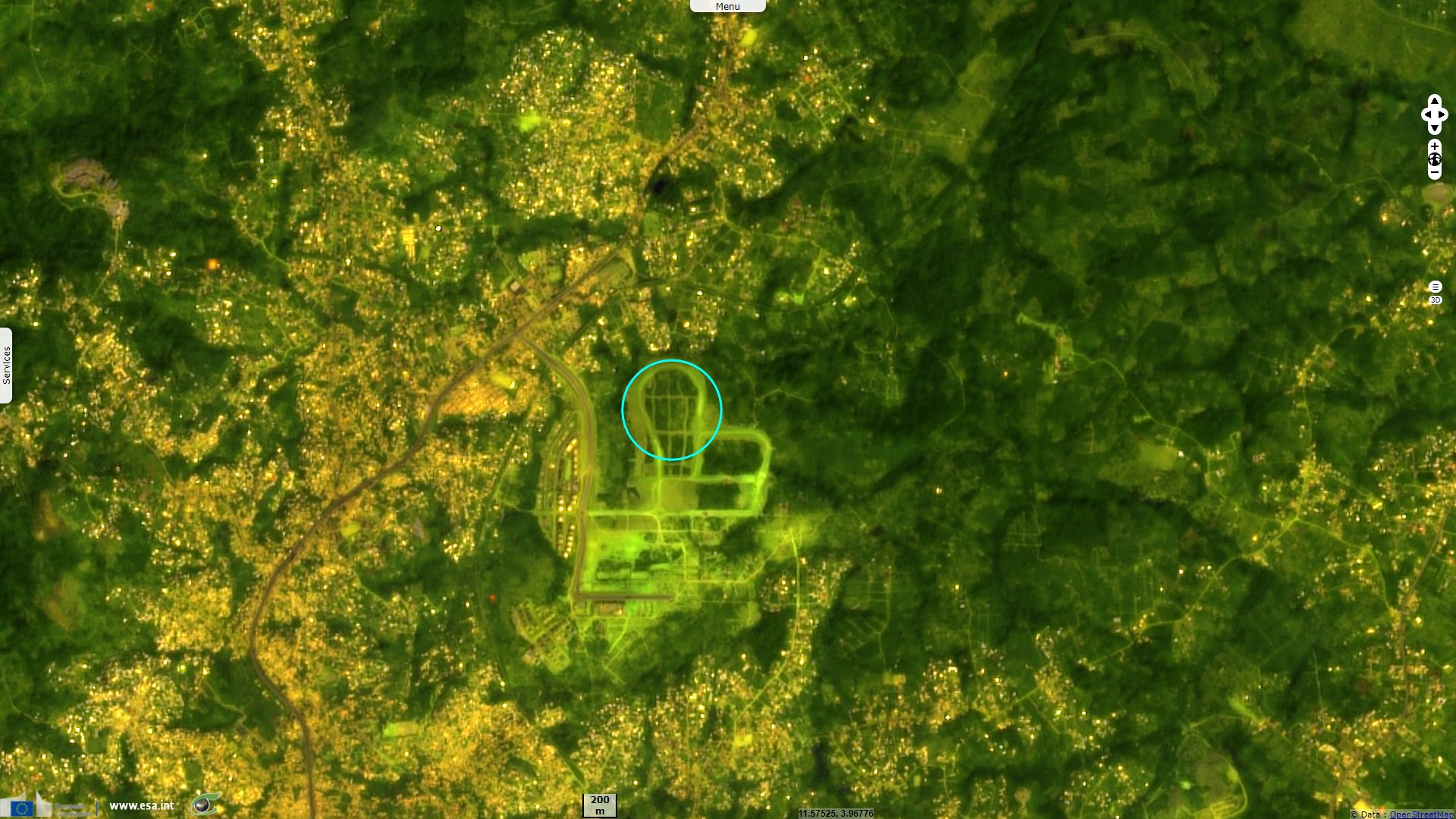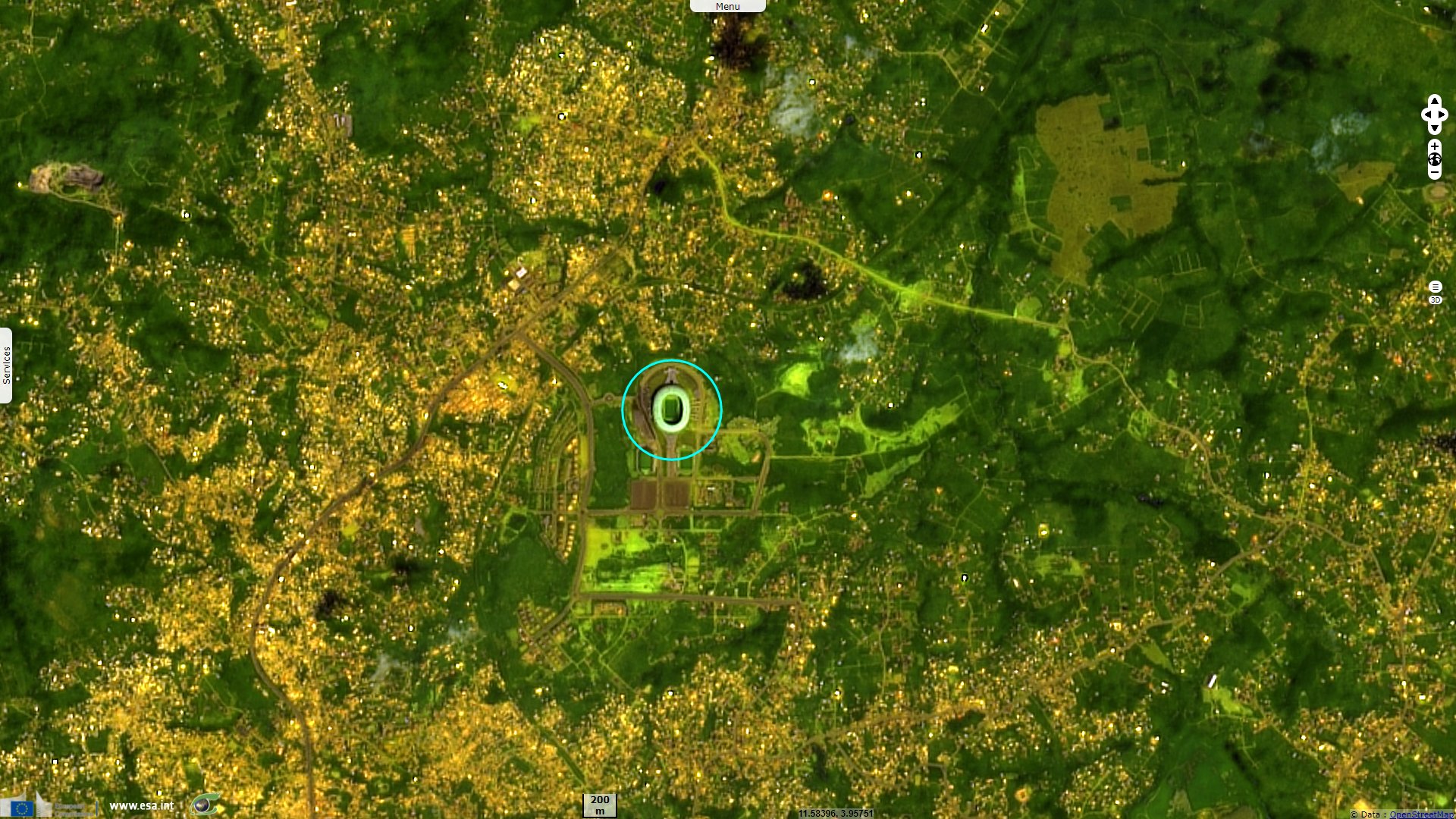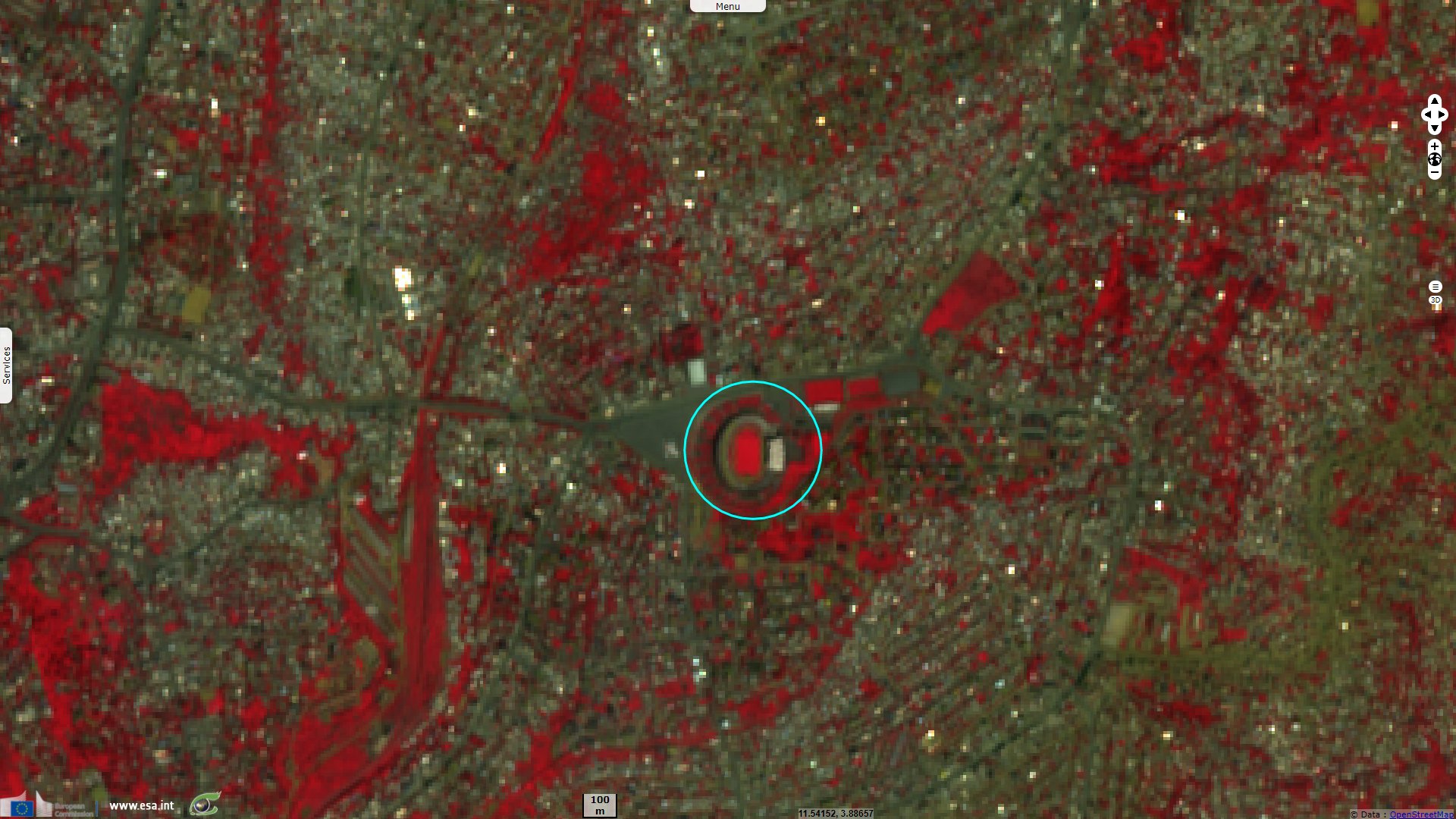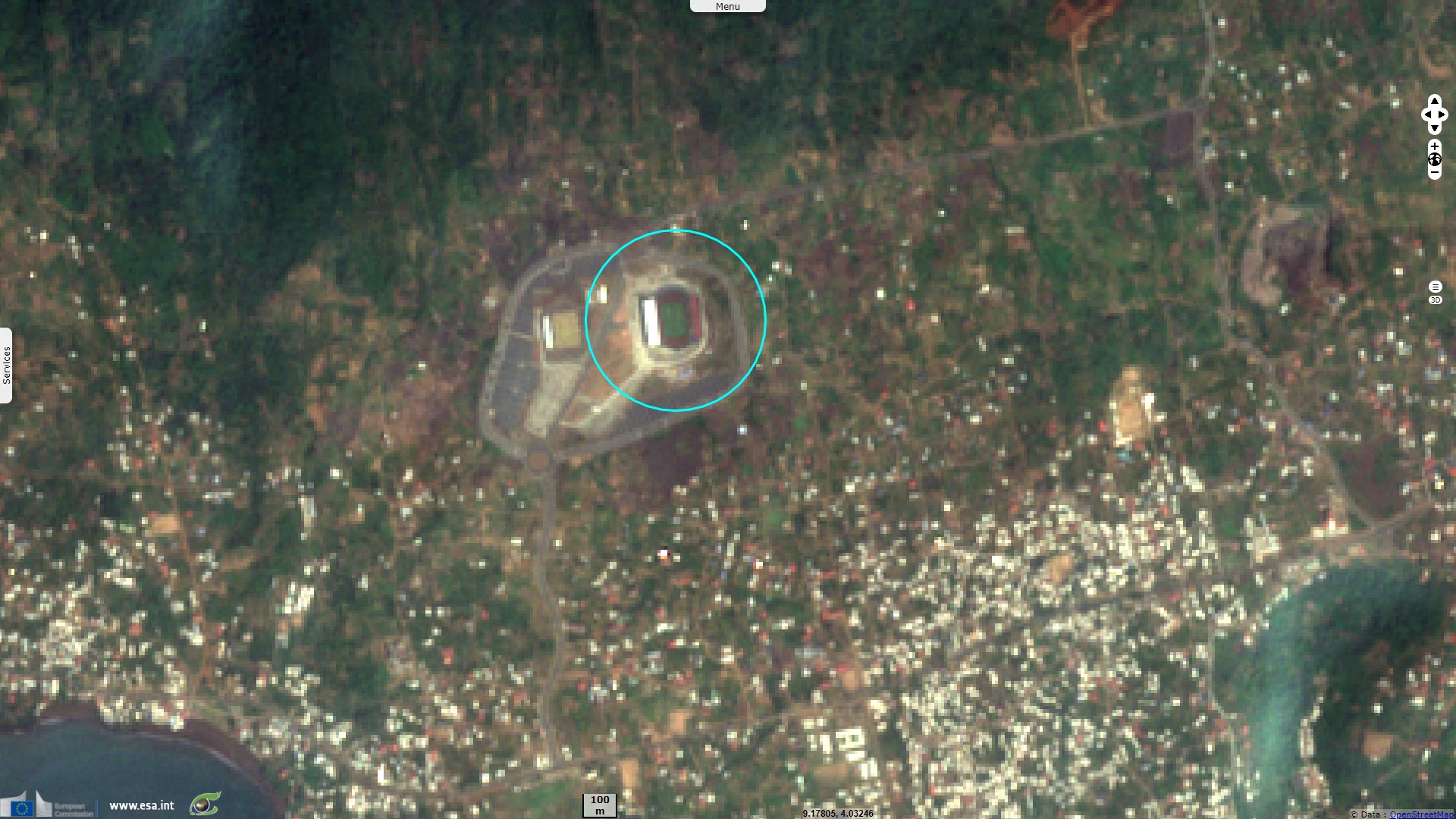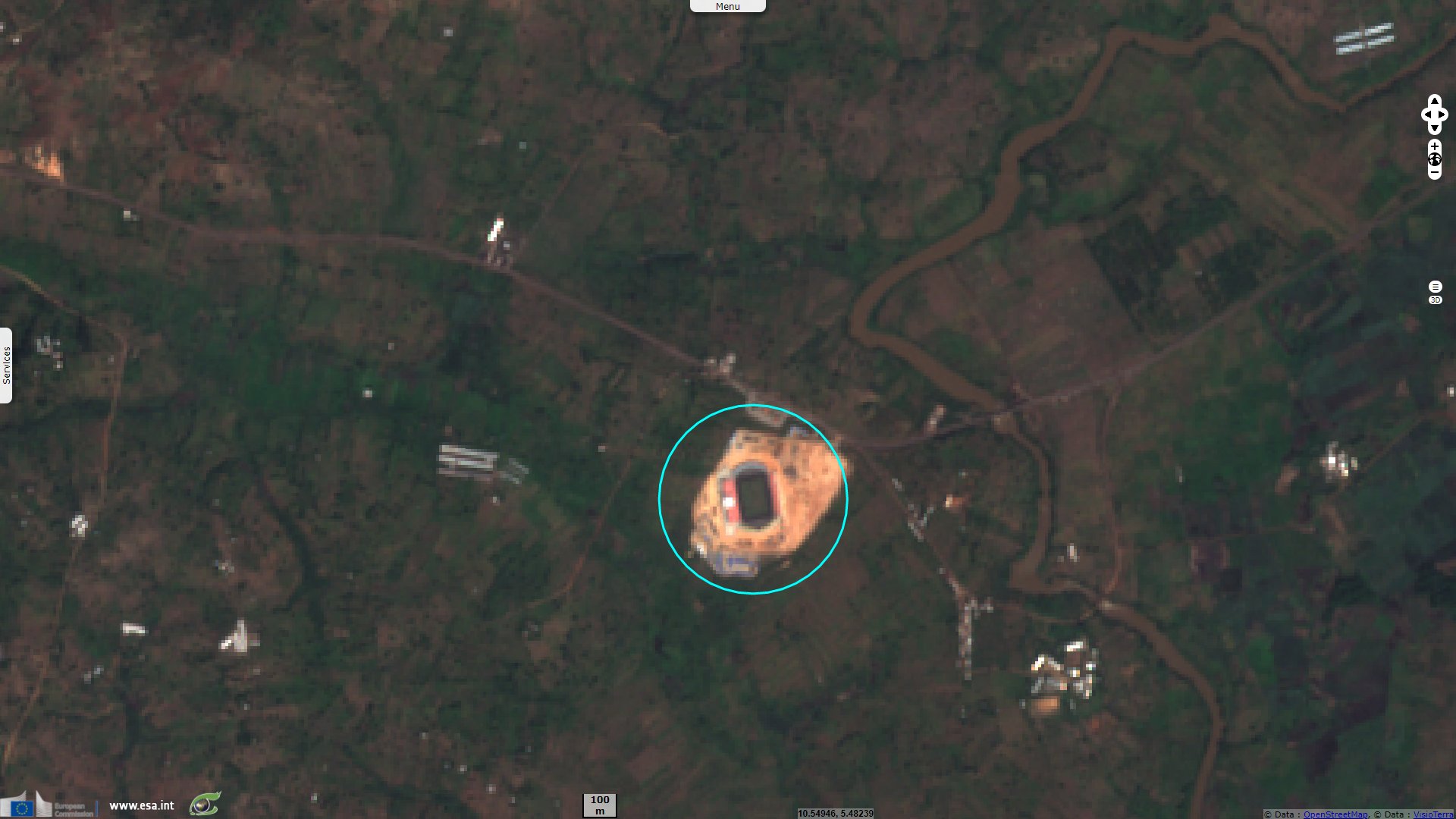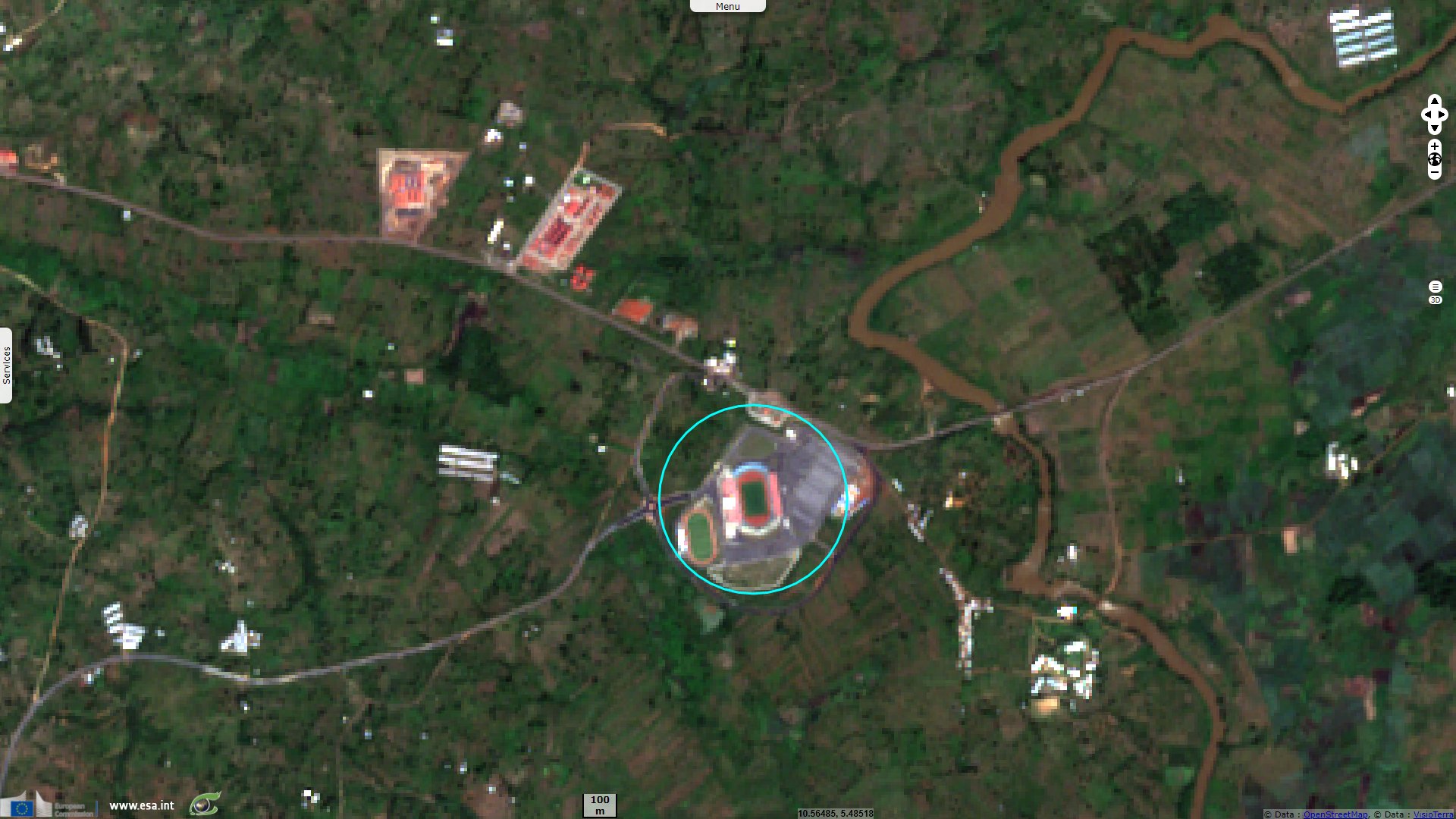Cameroon welcomes the 2021 Africa Cup of Nations
Sentinel-2 MSI acquired on 09 December 2015 at 09:34:02 UTC
...
Sentinel-2 MSI acquired on 29 December 2015 at 09:34:12 UTC
Sentinel-2 MSI acquired on 25 January 2020 at 09:41:59 UTC
Sentinel-2 MSI acquired on 24 December 2021 at 09:24:11 UTC
...
Sentinel-2 MSI acquired on 29 December 2015 at 09:34:12 UTC
Sentinel-2 MSI acquired on 25 January 2020 at 09:41:59 UTC
Sentinel-2 MSI acquired on 24 December 2021 at 09:24:11 UTC
Keyword(s): Land, urban planning, infrastructure, sport event, infrastructure, Cameroon
The site Camer237.com explains: "Cameroon is set to host the 2021 Africa Cup of Nations" (also known as CAN or Afcon) "after Ivory Coast agreed to give up its hosting rights. Cameroon intends to complete the outstanding work and says it is ready to host the competition for 2021." Previously, on 30 November 2018, Cameroon had been stripped of hosting the 2019 Africa Cup of Nations due to delays in the delivery of infrastructure, the Boko Haram insurgency and the Anglophone Crisis. It was held in Egypt instead
The official site dedicated to the Africa Cup of Nations reminds the reasons of the second delay: "At the request of CAF, the Cameroon Local Organizing Committee (LOC) has agreed to postpone the Total Energies Africa Cup of Nations Cameroon 2021 final draw for logistical reasons related to the Covid-19 pandemic."
The Paul Biya Stadium or Olembe Sports Complexe is the largest stadium in Cameroon with a capacity of 60 000 seats. Built in 2016 in a suburb of Yaounde 13 kilometers from the urban center, Olembe stadium costed an estimated 163 billion CFA francs (249 millions euros). Opened in 2021 for CAN 2021, it has a capacity of 60 000 seats.
The stadium is the second largest in West Africa and the 9th largest in Africa which will include two training stadiums, with 1000 seats each, an Olympic swimming pool basketball, a gymnasium, handball, volleyball, tennis, a 70 rooms 5 star hotel, shopping mall, a cinema and museum.
Out of the 252 500 seats available in these 7 stadiums in 2022, 130 000 are in 3 stadiums built for the event. Regarding the 122 500 existing previously they belong to 4 stadiums, opened or renovated between 2014 and 2018, some of them with a capacity increase. Cameroon will have to make use of this doubled capacity to make the investments worth the effort.
Located in the Japoma locality outskirts of Douala. This 138 million euros sports complex was completed in 2019, in view of the next African Cup of Nations that will organize in Cameroon. The stadium has a capacity of 50 000 seats.
Named after the first President of Cameroon, Ahmadou Babatoura Ahidjo; this stadium has a capacity of 40 122 seats. It is the home ground of the Indomitable Lions, Cameroon national team in men's international football. Built in 1972, the Ahmadou Ahidjo stadium was recently renovated in 2015/2016 at a total cost of 26 billion CFA francs. It is located in Yaounde city.
Located in the neighborhood of which it is named Roumde Adjia in Garoua, this stadium that was built in 1978 has 25 000 seats. It has been renovated in 2018 for the CAN 2021.
A multi-purpose stadium built from 2009 to 2012, it was officially opened in 2014; has 20 000 seats and meets the new FIFA standards. The Limbe Omnisport Stadium has a stunning ocean view. It hosted the 2016 Female AFCON.
Also known as the Bafoussam omnisports Stadium; the multi-purpose stadium is located in Kouekong, an outskirts of Bafoussam. It was inaugurated by the State of Cameroon on April 30, 2016. It is a stadium with conventional standards built in 2015 and a capacity of 20 000 seats.
The Bepanda Omnisports stadium was built from 1970 to 1971. Its renovatation in 2018 provided for a partial covering of the stands as well as an extension from 30 000 to more than 39 000 seats with a view to hosting the 2022 CAN.
